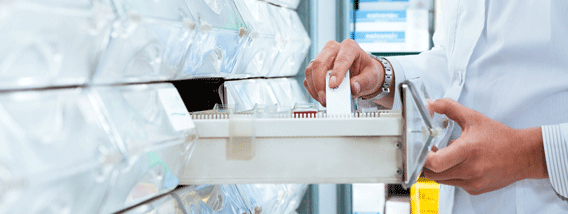
Chronic Kidney Disease (CKD) is the progressive, slow loss of kidney function over a series of months or years. Since the kidneys’ normal function is to remove waste and excess water from the body, worsening kidney disease can lead to a toxic build up of high levels of waste in the blood. CKD is also known as chronic renal disease, and in its more advanced stages, it is known as renal failure or kidney failure. It is important to detect chronic kidney disease and treat it as early as possible, in order to manage the organ functions and try to prevent failure.
CKD is identified in blood tests that show increased levels of serum creatinine or a urinalysis that shows falling levels of protein in the urine. Other tests may be performed to evaluate the extent of the disease or other underlying causes, such as medical imaging and renal biopsy. CKD is often diagnosed after screening individuals who are known to have increased risk of kidney problems, particularly those with diabetes, high blood pressure, or family history of CKD.
The most commonly known and accounted for causes of CKD are diabetes mellitus, hypertension (high blood pressure), and glomerulonephritis.
Early signs and symptoms of CKD involve general feelings of ill health and fatigue, with symptoms only fully presenting once the disease is more advanced. As it worsens, CKD symptoms may include:
Once diagnosed, CKD cannot be cured, but it can be treated and managed. The main goal of CKD therapy is to halt or slow the progression of the disease to Stage 5, which is commonly known as end-stage renal disease. Management of the disease in its earlier stages is possible with strict control of blood pressure – usually with angiotensin-converting enzyme (ACE) inhibitors or angiotensin receptor blockers (ARBs). Additional drugs may be prescribed to help manage phosphorous levels, treat anemia and bone disease, and replace hormones processed by the kidney (in patients with advanced CKD). Dialysis or a kidney transplant is necessary if the loss of kidney function reaches Stage 5 in order to extend life.
In the United States, there are several organizations and support groups available that offer a wealth of information and a range of support services to patients and physicians who treat kidney disease:
At Stat RX Pharmacy, we’re dedicated to helping treat CKD. Our expert pharmacists and staff assist providers and patients in creating treatment regimens that integrate into life’s schedule so that patients can manage their health comfortably and efficiently. Contact us today to learn more about our CKD services.